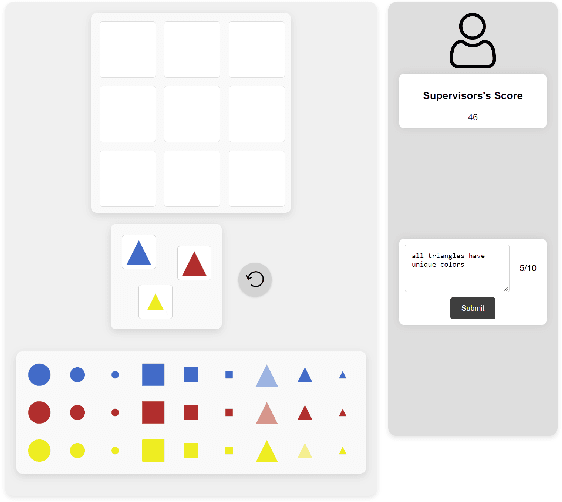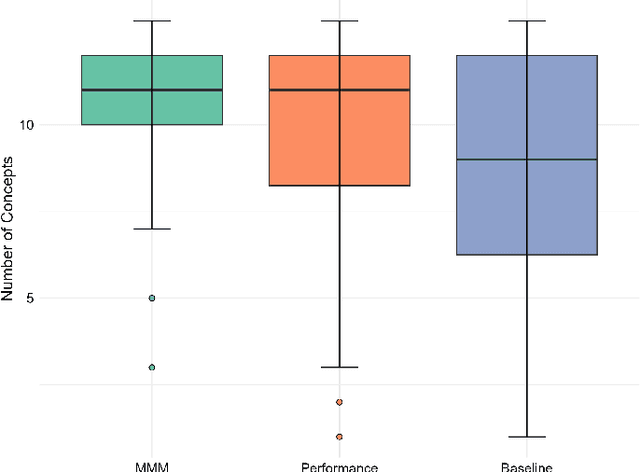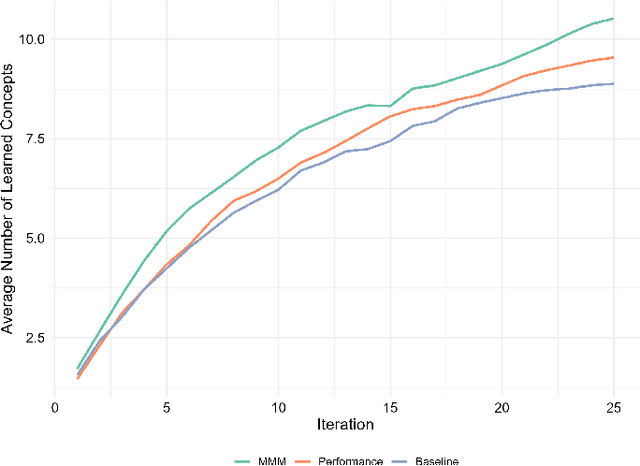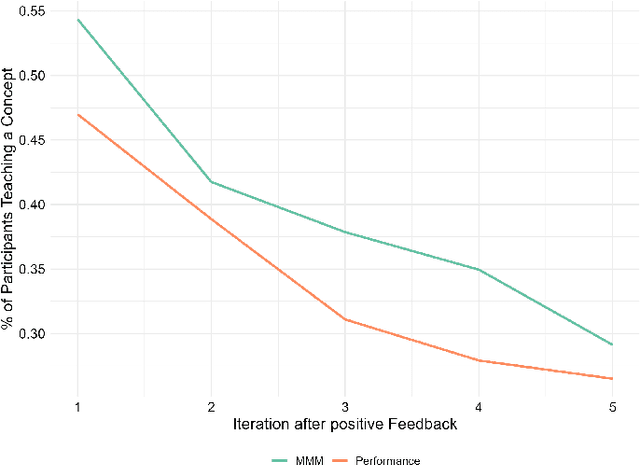Improving Human-Robot Teaching by Quantifying and Reducing Mental Model Mismatch
Paper and Code
Jan 08, 2025



The rapid development of artificial intelligence and robotics has had a significant impact on our lives, with intelligent systems increasingly performing tasks traditionally performed by humans. Efficient knowledge transfer requires matching the mental model of the human teacher with the capabilities of the robot learner. This paper introduces the Mental Model Mismatch (MMM) Score, a feedback mechanism designed to quantify and reduce mismatches by aligning human teaching behavior with robot learning behavior. Using Large Language Models (LLMs), we analyze teacher intentions in natural language to generate adaptive feedback. A study with 150 participants teaching a virtual robot to solve a puzzle game shows that intention-based feedback significantly outperforms traditional performance-based feedback or no feedback. The results suggest that intention-based feedback improves instructional outcomes, improves understanding of the robot's learning process and reduces misconceptions. This research addresses a critical gap in human-robot interaction (HRI) by providing a method to quantify and mitigate discrepancies between human mental models and robot capabilities, with the goal of improving robot learning and human teaching effectiveness.
 Add to Chrome
Add to Chrome Add to Firefox
Add to Firefox Add to Edge
Add to Edge